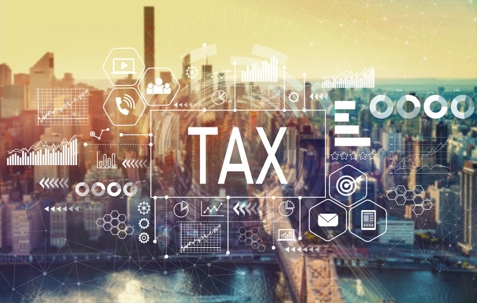Auto dealerships can be a strong candidate for New York sales tax audits because of their high-value transactions and the many rules that govern related sales. This article provides key New York sales tax information necessary for every auto dealer along with other sales tax topics relevant to your car business. Our firm lends its expertise on New York Sales tax to help car dealers defend their past sales reporting and minimize their sales tax liability where possible.
Requirements for Auto Dealers When Selling a Vehicle in New York
New York imposes a sales tax on the purchase of motor vehicles (e.g., cars, trucks, vans, motorcycles, etc.) within the state. Auto dealers and other motor vehicle retailers are responsible for collecting and paying that sales tax unless an exemption applies. As an auto dealer, you will need a Certificate of Authority from the Department of Taxation and Finance.
The applicable sales tax rate for the transaction depends on the local tax rate where the purchaser lives because of New York’s special rule. Sometimes, the rate will be the same as the sales tax rate for the location of your auto dealership. When the purchaser is a nonresident of New York or resident of a jurisdiction different than the where you deliver the vehicle, however, the purchaser should provide a Form DTF-820 to determine the sales tax rate. If the purchaser doesn’t provide a Form DTF-820, you should apply the sales tax rate where you deliver the car (e.g., the dealership lot).
How Different Fees and Discounts for an Automobile Affect New York Sales Tax
The sale of a motor vehicle often includes much more than just the purchase price of the automobile. You likely have many other fees, charges, discounts, and other incentives within the transaction that all have varying New York sales tax implications.
Auto dealerships should generally include the following in their calculation of sales tax for a motor vehicle sale:
- Warranty fees
- Transportation charges
- Advertising charges
- Dealer preparation fees
- Certain tire disposal fees
- Customer rebates and incentives from manufacturers or third parties
- Dealer-installed equipment and accessories
In contrast, you usually won’t include the following charges or discounts when calculating sales tax for a vehicle purchase:
- Financing fees (e.g., interest)
- DMV fees (e.g., vehicle registration, title, inspection fees)
- Dealership discounts
- Factory incentives (e.g., bulk discounts)
- Some documentation fees
- Itemized charges for reasonable amounts of gap insurance
- Trade-in allowances
Auto dealerships should carefully itemize their receipts to separate the above-listed items to avoid paying sales tax on otherwise excluded charges. New York Publication 838 for Automobile Dealers provides more detailed information on the specific sales tax applications of the motor vehicle items listed in this section.
Auto Sales That May Be Exempt from New York Sales Tax
New York may offer certain motor vehicle sales within your auto dealership a corresponding exemption that removes your duty to collect and pay sales tax.
- Vehicles bought for resale (dealer must provide a resale certificate Form ST-120)
- Resale for other related personal property (e.g., accessories, parts, oils and lubricants, paint, etc.)
- Subcontracts for certain motor vehicle services (e.g., repairs)
- Sales to non-residents
- Accessibility equipment (and installation charges) for persons with a disability
- Vehicles used primarily for farming activity and certain horse boarding operations
- Vehicles bought for film production
- Qualifying tractor, trailer, and semi-trailer sales
- Bus sales
- Sales of vehicles to exempt organizations (e.g., U.S. government, State of New York, charities, educational institutions, certain Indian nations, tribes, and individuals)
Other Auto Dealer Transactions That May Have New York Sales and Use Tax
Your car dealership likely relies on income from a variety of other sales and transactions related to, but separate from, the purchase of a motor vehicle. New York may have unique sales tax rules that apply to such transactions in your dealership depending on their nature. For example:
- Vehicle maintenance, service, or repair charges
- Sales of motor fuel
- Short and long-term vehicle leases
- A dealer’s personal use of a vehicle
- Donated vehicles
- Vehicles used for demonstrations or loaners (i.e., courtesy vehicles)
- Parking, garaging, and storing of vehicles
Need Additional Help with New York Sales Tax for Your Auto Dealership?
New York car dealers can often find themselves at a disadvantage when it comes to sales tax reporting because of the Tax Department’s over reliance on data from other state agencies like the DMV. This data does not always provide an accurate representation of your business’s transaction but is what the Tax Department uses to establish cause for an audit. Unfortunately, the burden is yours to defend past reporting during an audit that can present further risk of penalties or even criminal charges in cases of tax fraud. The professionals at Sales Tax Helper use their knowledge and experience to advocate for clients in all phases of sales tax reporting, including services of consulting, audit defense, and other tax controversy representation.
Schedule your consultation for expert help with your car dealership’s New York sales tax reporting.

